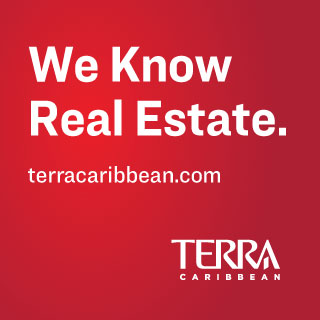COVENANTS – Restrictions On Land Use In Barbados
Covenants in relation to land are generally intended to create obligations on owners of land and so regulate land use. This is a universal concept. Covenants may require the owner of land to do something affirmative (positive) or may require the owner to refrain from doing something (restrictive).
Restrictive covenants are binding obligations running with land which are usually introduced by a person developing or sub-dividing land for sale. In Barbados, a building estate is a development where many parcels are sold subject to the same covenants. The same applies in a condominium development where all owners are bound by the same covenants contained in the condominium declaration.
There are no stipulations on what a developer can include or the number of restrictions which can be specified. A common example of a restrictive covenant in Barbados is ‘not to use the property other than for residential purposes’. Another is, ‘not to build more than one dwelling house on the property’.
Restrictive covenants are intended to run with the title to the land and are enforceable against future purchasers, so anyone acquiring the title to the property is bound by covenants in the chain of title. When purchasing, it is therefore particularly important to confirm whether there are any covenants affecting the land, and to ensure that the obligations/restrictions relative to each covenant are understood, as the purchaser will be bound by them.
There are three common legal documents in which covenants are introduced or stated. These are the Purchase and Sale Agreement in a new development, the Conveyance in relation to a resale in an existing development, or a Deed of Covenant which is usually made between two adjoining land-owners.
In the case of developments, a developer will devise and outline a list of covenants usually in order to preserve the amenities and value of the development. It is possible for an owner of a subdivided parcel to impose covenants on adjoining lands he is selling, as a means of controlling how those lands are to be used. For example, Mr. Smith owned a large lot of land. He subdivided the lot into two parcels – Parcel A and Parcel B. Mr. Smith built his house on Parcel A which is an elevated lot with an uninterrupted view of the ocean. He decided that he would sell Parcel B but was concerned that a house of more than one storey would block the view from his house. Mr. Smith therefore imposed a restrictive covenant on Parcel B to say that “no structure higher than 15 feet shall be erected on Lot B”.
Covenants are primarily introduced by an owner to maintain a particular standard and appearance within the neighbourhood. Covenants binding on the owner of a property within a residential neighbourhood can prohibit things such as operating a business. They can also restrict the type of property which can be constructed (e.g. whether apartment blocks or single-family dwellings only), roofing materials, exterior colours, how the property is to be enclosed etc. Sometimes covenants can be very simple and other times they can be a bit more complex.
A FEW EXAMPLES ARE OUTLINED BELOW:
• Not at any time to erect or cause or permit to be erected on the lot or any part thereof, any building or erection other than a dwelling-house/building (not apartments or condominiums) of two storeys or less.
• Not to carry on any trade or business whatsoever, the intent being that no lot nor any buildings erected thereon shall be used except for residential purposes but the
rental of any such buildings for residential use shall not be deemed to be carrying on any trade or business.
• No building shall be constructed other than of coral stone or reinforced concrete blocks or other such materials which may be approved by the Vendor or the Property Owners’ Association.
• The roofs of all buildings shall be clad either with clay tiles, wooden or asphalt shingles or with profile metal sheeting or other similar material but shall not be clad with galvanised metal sheets.
• Not to allow the lot to become overgrown or untidy and to keep the grass properly mown.
• No burning of wood, leaves, trash, garbage or household refuse shall be permitted on the lot.
Restrictive covenants can be discharged or modified if all of the persons who are entitled to the benefit of the covenant agree to modify or discharge the covenant or where the Court determines that the restrictive covenant should be modified or discharged. The laws of Barbados give the Court the power to discharge or modify restrictive covenants that are attached to the land where it is found that:
a) The covenant should be deemed obsolete due to:
(i) changes in the character of the property/neighbourhood; or
(ii) other circumstances which the Judge deems material.
b) The continued existence of the covenant without it being modified would hinder the reasonable user of the land without securing sufficient practical benefits to justify the continued existence of the covenant, or the continued existence of the covenant without modification.
c) The person(s) who is/are entitled to the benefit of the restriction (who are over the age of 18 and have the mental capacity to make decisions) has/have agreed, either expressly or by implication, by their acts or omissions, to the covenant being discharged or modified.
d) The proposed discharge or modification will not injure the person(s) entitled to the benefit of the covenant.
If the owner of land is aware of a restrictive covenant which benefits their land and they believe that their neighbour is carrying on an activity that is in breach of this restrictive covenant, there are a number of options available to them to enforce their rights. It is usually best to first have a discussion with the neighbour about the activity. If they continue to carry on the activity, the owner should visit an attorney-at-law to discuss a way forward. If they are unable to resolve the dispute through discussions, their attorney may suggest that they take action in court. The remedies that will be available to the owner of the land would include an injunction to prevent the neighbour from taking the action in question, or claiming damages (monetary compensation) for a breach of covenant that has already happened.
Overall, covenants which are binding on property owners in Barbados especially in developments, are intended to benefit the owner in providing a legal mechanism to maintain the quality of the neighbourhood, guarantee that the nature of the property remains the same and to regulate how the property is used.



